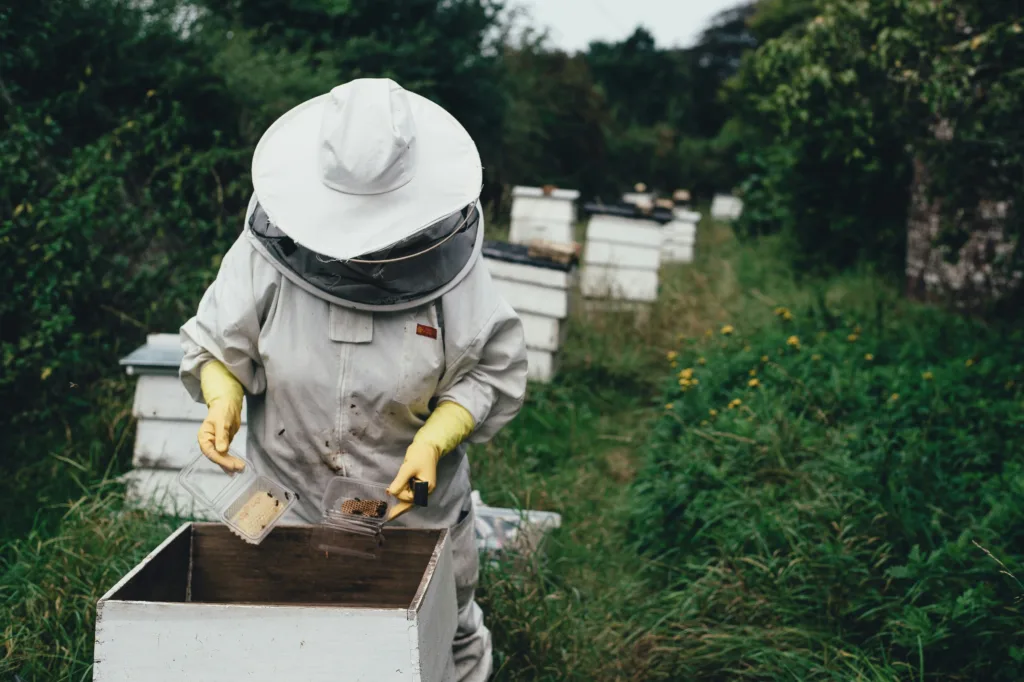Keeping Mosquitoes in Check: Resistance Monitoring Updates from NEVBD
- Expert Zone

Author: Caitlin Gill, Amy Vu, and Dr. Jamie Ellis
Beekeepers and mosquito control personnel desire to keep managed honey bee colonies healthy and productive while simultaneously protecting public health. Both groups can follow a few tips to promote a healthier, safer environment for citizens and honey bees.
There are several proactive approaches that beekeepers can enact to prevent potential impacts from mosquito control operations on their colonies. These include placing hives and their entrances away from roadways with a setback of at least 300 feet. This limits exposure to treatments from truck ground applications. Beekeepers can add an empty top box (super with no frames), which may allow for a reduction of honey bees outside the entrance. Additionally, beekeepers should not wrap hives with plastic or other covers. Wrapping a hive can cause colonies to overheat.
Mosquito control employees can implement proactive approaches to working with beekeepers. They can offer courtesy application notifications for registered beekeepers and their apiaries. They can also share planned treatment times and locations on their website and social media platforms, providing beekeepers with a source of updated information.
Good recordkeeping is a vital best management practice for all beekeepers and is an important way to monitor a colony’s health regularly. Recording observations of mite levels, visual signs of a laying queen, treatments, and general health assists the beekeeper in many ways. If issues arise within hives, beekeepers can reach out to their state beekeepers association for resources. In Florida, you can reach out to the Florida Apiary Inspectors or the University of Florida Extension Service to receive advice on potential solutions. Florida beekeepers must only use federal and state-registered pesticides according to their labels when controlling bee pests and pathogens.
Likewise, mosquito control personnel must only use federal and state-registered pesticides according to the product label. Assessment strategies include estimating the risk associated with applications by reviewing the location and timing in areas where beekeepers’ hives may be present.
Sharing information is important for both mosquito control and beekeepers. This exchange of information generally includes apiary locations, pending mosquito treatment areas, and measures beekeepers can use to reduce man-made mosquito breeding containers in and around their apiaries. This has been successfully implemented in Florida by beekeepers and mosquito control personnel sharing information at local beekeeper association meetings, public events, websites, and through social media.
Together, a commitment to prevent, assess, and communicate has created beneficial partnerships between these two groups who are vital to the health and well-being of our communities.